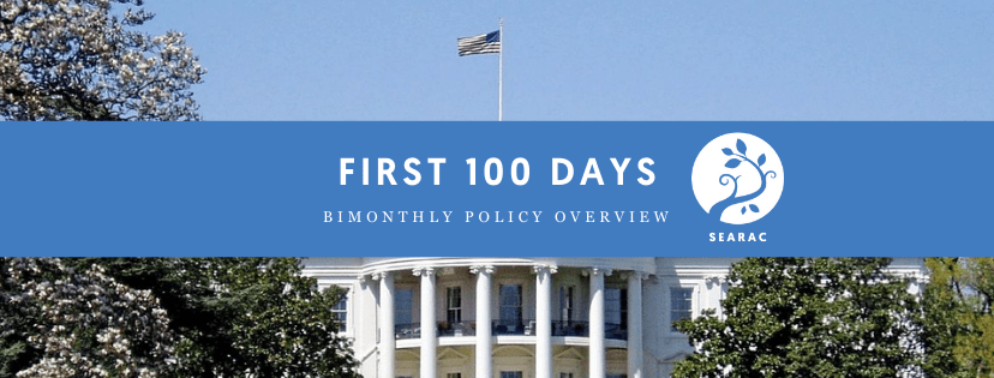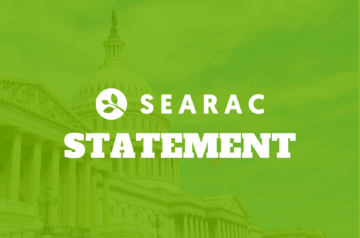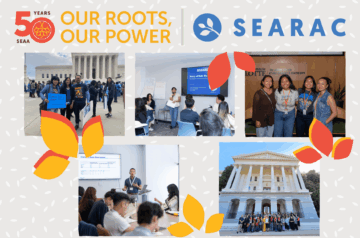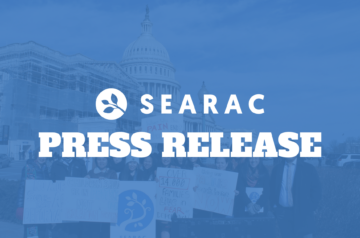Welcome to the newest edition of SEARAC’s bimonthly e-newsletter providing policy highlights from the first 100 days of the Biden-Harris Administration. We will be sharing updates on the actions of the new administration that impact Southeast Asian Americans. If you have questions or want to learn more about any of the policies that SEARAC is tracking, contact National Policy Director Kham Moua at kham@searac.org.
A joint statement from SEARAC and SEAFN: Congress must enact a fully inclusive immigration bill
Congress must enact a fully inclusive immigration bill
U. S. Citizenship Act continues to sideline Southeast Asian refugees
Last week, Rep. Linda Sanchez (D-CA-38) introduced President Biden’s immigration bill, the U.S. Citizenship Act. The proposal would offer a path to citizenship for 11 million undocumented immigrants, including more than 100,000 undocumented Southeast Asian immigrants, and Temporary Protected Status holders.
The bill also includes Rep. Judy Chu’s Reuniting Families Act to address the backlogs in granting family-based and employment-based visas. Furthermore, the bill adopts the narrow definition of conviction from the New Way Forward Act, eliminates several bars to relief from deportation, and provides more forms of discretionary relief for people who have been entangled with the criminal legal system.
However, while the US Citizenship Act includes some components that address the criminal legal and immigration systems, it disappointingly adds harmful and unnecessary new additional criminal grounds of inadmissibility. The bill would exclude many immigrants who possess a broad range of convictions from citizenship and leave these communities vulnerable to deportation.
Read our full statement here.
New ICE interim guidance on enforcement
On Thursday, ICE issued new enforcement priorities addressing enforcement actions, custody decisions, execution of final orders, financial expenditures and strategic planning and remains in effect until Homeland Security Secretary Mayorkas issues new enforcement guidance, which is expected in less than 90 days. Individuals with a final order of removal and detained for over 90 days will be subject to continued case review on a regular basis. If an individual is deemed a threat to public safety, ICE agents are allowed to take action against that individual. A person is presumed to be a public safety priority if they have been convicted of an aggravated felony or convicted of an offense involving gang affiliation, or is 16 years or older and participated in certain gang activity. SEARAC is extremely concerned about these new interim guidance and remains committed to advocating to end all detentions and deportations.
ACA special enrollment period opens
The Biden Administration has opened a 90-day, special enrollment period for the ACA that lasts from Feb. 15 to May 15. Unlike other special enrollment periods, this newly announced enrollment period is available to any individual or family seeking health insurance, with plans going into effect the month following successful enrollment. Community members can sign up at healthcare.gov until May 15 in most states. Check out our FAQs for more information, including states with their own marketplaces.
New: ED COVID-19 handbook
The US Department of Education released ED COVID-19 Handbook, Volume 1: Strategies for Safely Reopening Elementary and Secondary Schools, the first volume in a series of resources to support schools in reopening. The handbook builds on CDC guidance that schools can safely reopen with consistent implementation of risk mitigation strategies, such as face masks and physical distancing
However, the handbook makes clear that safety is only possible when schools can fully implement safety precautions, underscoring the great amount of support our schools and communities still need from the federal government. As Congress continues to negotiate the next COVID-19 relief package, SEARAC demands robust funding to save education, especially for marginalized children who have been disproportionately impacted by the pandemic.




